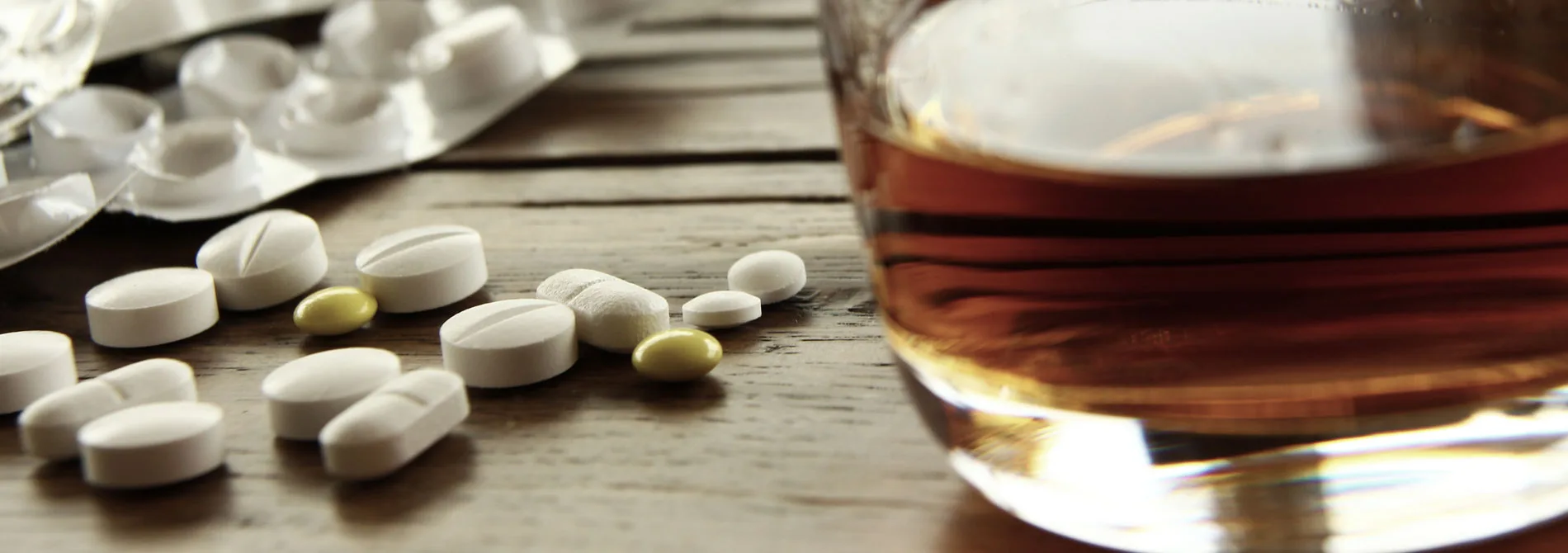It might seem harmless to have a glass of wine while taking your regular medication, but mixing alcohol with prescription or over-the-counter drugs can have serious, even life-threatening consequences. At Hanley Center, we’ve seen firsthand how combining substances, even unintentionally, can impact both physical and mental health.
Understanding the risks can empower you to make safer choices and, if needed, seek timely treatment that could save your life.
Why Mixing Alcohol with Medications Is Dangerous
Alcohol affects every system in the body, and when combined with medications, especially those that act on the brain or nervous system, it can intensify side effects or trigger dangerous reactions. At its most benign, alcohol may reduce the effectiveness of your medication. At its most extreme, it can lead to organ failure, overdose, or even death.
Even if your medication label doesn’t explicitly warn against alcohol use, the risk is real, and often misunderstood.
How Alcohol Interferes with Medication
For medications to work properly, they must be absorbed into the bloodstream, metabolized by the liver, and distributed throughout the body. Alcohol disrupts this process by:
- Changing how your liver breaks down medication
- Altering how quickly medication enters your system
- Increasing sedation or suppressing breathing when mixed with certain drugs
- Reducing medication effectiveness or creating toxic levels in the body
Whether it’s an antihistamine, antidepressant, opioid, or sleep aid, combining alcohol with medication can significantly alter the intended effect, and not for the better.
Common and Dangerous Interactions to Watch For
Not all medications react the same way when combined with alcohol. Here are a few examples of hazardous combinations:
Opioids & Alcohol
- It can cause life-threatening respiratory depression
- Significantly increases risk of overdose and death
Antidepressants & Alcohol
- May worsen symptoms of depression and increase suicidal thoughts
- Can heighten sedation and impair cognitive function
Sleeping Aids & Alcohol
- Suppress the central nervous system, increasing the risk of blackouts, slowed breathing, and fatal overdose
Heart Medications & Alcohol
- It can cause dangerous drops or spikes in blood pressure
- May trigger arrhythmias, fainting, or chest pain
Cold, Flu, or Allergy Medications & Alcohol
- Can intensify dizziness, drowsiness, and confusion
- Increase the risk of accidental injury or impaired judgment
Muscle Relaxants & Alcohol
- May lead to extreme sedation, respiratory distress, or seizures
Even seemingly harmless over-the-counter medications can lead to serious complications when alcohol is involved.
Physical Signs You May Be Experiencing a Dangerous Interaction
If you’ve combined alcohol with medications and are experiencing any of the following symptoms, seek medical attention immediately:
- Dizziness or loss of coordination
- Nausea or vomiting
- Sudden changes in blood pressure
- Confusion or agitation
- Slowed or labored breathing
- Irregular heartbeat
- Seizures
Erratic behavior or mood swings may also signal that your body is struggling to process the substances safely.
Timing Matters: How Long Does Alcohol Stay in the System?
It’s a common misconception that waiting “a few hours” after drinking makes it safe to take medication. But the metabolism of alcohol varies by person and drink type:
- One shot of liquor takes about 1 hour to metabolize
- One glass of wine takes roughly 3 hours
- Several drinks in one sitting? It could take 6–12+ hours for alcohol to clear your system fully
If your medication label warns against alcohol, it’s best to avoid drinking altogether while on the medication, even if you think the alcohol is “out of your system.”
When Casual Mixing Becomes a Warning Sign
For individuals taking medications long-term, such as antidepressants, anti-anxiety meds, or pain relievers, even occasional drinking can become dangerous. Over time, this pattern can escalate, increasing the risk of dependence, medical complications, or an overdose.
If you or someone you love is routinely mixing alcohol with prescription drugs, intentionally or not, it may be time to consider whether a substance use disorder is present.
How Hanley Center Can Help
At Hanley Center, we offer medically supervised detox, residential treatment, and dual diagnosis care for individuals struggling with substance use and co-occurring mental health conditions. If alcohol and prescription drugs have begun interfering with medication, health, or quality of life, our team provides expert support in a safe, compassionate environment.
No matter where you are in your journey, Hanley Center provides the resources, expertise, and respect you deserve.
Take the First Step Toward Healing
Mixing alcohol and medication may seem harmless in the moment, but the risks can be deadly. If you’re unsure whether your drinking is safe, or you know it’s become a problem, help is available.
Contact Hanley Center today to learn more about our detox, residential, and mental health treatment programs. Healing is possible. We’ll help you get there safely
Hanley Center has been helping people all over the country achieve wellness for more than 40 years. In addition to providing age- and gender-specific treatment for substance use and co-occurring disorders, Hanley offers a Patriots Initiative for first responders and veterans, a program specifically for pregnant women, and a boutique residential mental health program for adults. For information on our programs, call us today: 561-841-1033.




